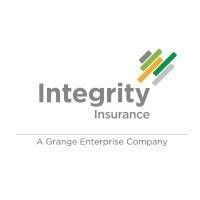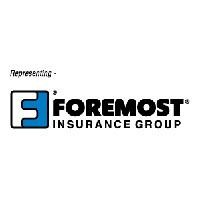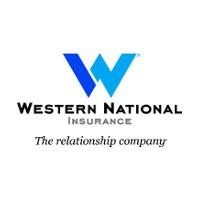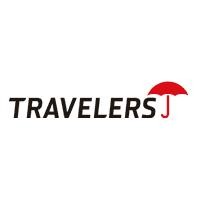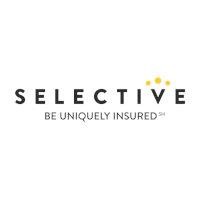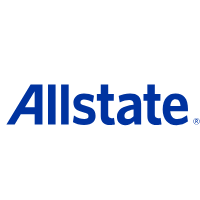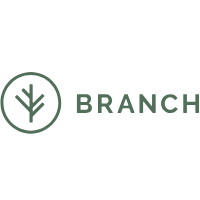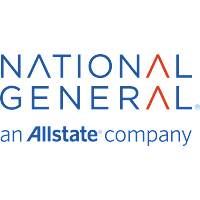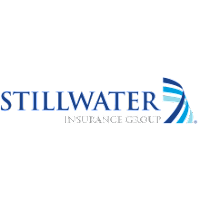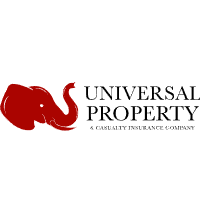We have over 15 years of experience to help you navigate your insurance needs. As an independent insurance agency, we have numerous companies to find the right fit at the best possible price, saving you both time and money. Everyone’s insurance needs are unique, and we are here to assist you with any questions you may have to make sure you are properly protected. The following are some of the most common questions we have heard from clients.
Select a category to see the questions and answers for that type of insurance.
Most life insurance policies require you to take a medical exam to verify your health condition, but there are some options available that do not require an exam. If an exam is required, the exams can usually be completed at your home or place of work by a qualified medical professional like a nurse.
When you reach the end of your term life insurance policy, you have the option to either let it expire or continue the policy on a year-to-year basis until a certain age. It’s important to note that the premiums will be significantly more expensive after the term ends. If you want a term life policy initially, but may want a permanent policy at some point, you should make sure your term policy includes a conversion option.
Life insurance costs vary tremendously depending on the type of insurance policy that is purchased (term versus permanent). In addition, age, health, medical history of the insured all have a significant impact on the cost of a policy.
Each individual should conduct their own needs analysis to determine how much life insurance they should have. This is a very personalized process that is unique to each person, but we have tools and are here to help you determine your individual needs and the type of life insurance product that is the best option for you.
There are many reasons to buy life insurance, and while the need doesn’t exist for everyone, many individuals and families decide it’s well worth the cost. Here are some common reasons why you may want to get life insurance:
- Replace lost income: Many families depend on dual incomes to afford their standard of living. To protect that standard of living, many families choose to insure all or a portion of their future income stream through life insurance.
- Pay final expenses: Funeral, probate, uncovered medical expenses, and estate administration costs can add up significantly.
- Pay off debt: Many people utilize life insurance to ensure that debt burden doesn’t get transferred to loved ones should they die prematurely. Debts can include student debt, mortgage debt, credit card debt, and any type of personal debt.
- Leave a legacy: Some people want to make a positive impact on the world and choose life insurance as a means to accomplish this. Charitable organizations can often be named as the beneficiary on life insurance policies, so upon death, the life insurance proceeds are donated.
There are numerous factors that can impact your business insurance costs, including the policy types you are considering and your business operations. Here are some of the most common factors that can affect the price of your policies:
- Type of business or Industry: Different professions carry different levels of relative risk.
- Number of employees: The cost of your insurance will depend on whether you are a sole proprietor or have numerous employees. Workers’ compensation insurance, in particular, is affected by your payroll, the number of employees, and the type of work or business.
- Claim history: Insurance companies use certain metrics to determine a company’s level of risk, and an agency will likely ask for your insurance loss runs if you are applying for a new policy. One way to keep your claims to a minimum is to make sure that employees are properly and continually trained on safety protocols specific to your workplace.
- Risk: While the type of business that you are in is the biggest determinant of risk, there might be other factors besides the level of risk for your employees. For example, if your company has a location that is frequented by the public, there might be risks associated with walkways, parking lots, or other issues with the physical premises that you might not have if your business isn’t frequented much by the public.
Your business should have a general liability policy to protect you because accidents do happen. You also may need the following:
- Building insurance if you own your building
- Business personal property insurance to cover your equipment, tools, furniture, and inventory
- Workers compensation insurance to protect your employees
- Business automobile insurance if your business owns vehicles
General liability insurance provides insurance protection for a company’s assets, financial obligations, legal defense, and any settlements or judgments awarded to an injured party. It may also include claims for copyright infringement, false or misleading advertising, or libel and slander. If a patron is injured in some way in the course of doing business with your company, your general liability insurance will provide coverage to protect you.
BOP stands for Business Owners Policy and is often appropriate for small to medium-sized businesses, usually covering property, casualty, liability, and business interruption coverage. A business is likely to pay less expensive premiums with a package deal instead of having separate policies.
You may be held liable for injuries to visitors that occur in your unit, through the medical payments coverage on your policy. Your policy also helps provide financial protection for covered liability claims and lawsuits brought against you for bodily injury or damage to their property that was caused by you, your children, or pets.
You should take inventory of your possessions such as clothing, appliances, electronics (TV, phone, computers), jewelry, etc. Be sure to keep receipts, photographs and video of your unit for proof of value.
You should make sure you read and understand your homeowners association (HOA) agreement, but usually, your condo association’s master insurance policy includes protection for the outer structure of your condo, including the roof, while your condo insurance policy provides protection for the “walls in” of your condo such as flooring, cabinetry, built-ins, stairs and other features of your home that are considered a permanent part of your condo or townhome unit. In addition, your policy provides protection for all of your personal belongings.
Condo owners are responsible for the personal space they live in, which can work much differently than homeowners insurance. Whereas homeowners are responsible for insuring the inside and outside of a home (as well as the land it sits on), condo insurance typically requires owners to insure the interior of their residence. Condo owners do not own the entire condominium complex, the land the condo sits on, the condo’s building structure, and the buildings common areas, which are all shared by the collective group of condo owners. From an insurance standpoint, individual unit owners typically pay a monthly fee to their homeowners association (HOA) to assume responsibility and cover these common areas.
Yes, passengers would be covered under your Medical Payments coverage, which includes you as a driver, as well as any passengers up to the policy selected coverage amount.
Yes, as long as you include comprehensive coverage when you insure your bike or vehicle. It also may include coverage for theft of personal property, including your safety riding apparel.
Yes, in addition to your motorcycle, you also get a certain amount of safety apparel coverage for your helmets, suits, gloves, boots, and other gear. You can also increase the policy limits with certain companies to ensure all of your accessories are covered.
Most companies offer a storage option, where all coverages except comprehensive are halted, and therefore, those related premiums are halted, saving you premiums when you are not using your RV for several months. Comprehensive coverage still provides protection against theft, fire, hail, etc. when the RV is in storage.
Although auto insurance can insure RV’s and motorhomes, it is not designed for this specifically. The auto policy often won’t provide the full line of liability or collision coverage that you might need. In addition, it doesn’t cover all of the possessions you may have in your RV such as clothes, computers, satellites, sporting and camping goods, jewelry, and electronics. There are companies that write separate RV insurance policies that are usually more comprehensive and more economical than adding on to your auto policy.
As more and more people purchase recreational vehicles, insurance companies are creating additional features regarding coverage. See the Company Specific Options above for a list of some of these coverages.
Agreed value means that coverage is provided for a pre-determined amount settled upon by both the insured and the insurance company, and includes the watercraft, including motor(s), portable boating equipment, permanently attached equipment, marine electronics, and trailer (if trailer coverage is requested). In the event of a total loss, you would receive this specified agreed value, with no depreciation. Actual cash value is defined as replacement cost minus depreciation. In the event of a total loss, the amount you would receive accounts for depreciation in value.
Boat insurance may or may not cover engine damage, depending on the company and the policy. Some insurance companies have “machinery damage exclusions” while others do not; it often depends on the age of the motor and whether the company offers this coverage. Reimbursement may include replacement costs or be subject to depreciation.
Boat insurance covers passengers as well as the owner in an accident. Passengers on a boat would be covered under the liability portion of the boater’s policy. However, depending on the policy, coverage may or may not extend to water skiers you are pulling behind the boat. We can discuss how important this and other benefits and coverages are to find the right company to fit your needs.
The point of an umbrella policy is to protect your assets and net worth from a lawsuit. If you have the assets and net worth to protect, an umbrella policy makes sense. It is a good investment for anyone who has more assets and net worth than they have in liability coverages on their auto, homeowner, and other insurance policies.
Here are some simple steps to get you started:
- Calculate your net worth. Add the value of all assets (home, autos, cash, stocks and bonds, retirement accounts, etc.) and then subtract the value of all your debts.
- Review your liability limits on your existing insurance policies (auto, homeowners, motorcycle, boat, etc.).
- Take the smallest liability limit from step 2 and subtract from the number you figured in step 1. The difference is the amount that is unprotected.
Renters insurance typically covers family members, but may not include roommates. While some providers may allow you to add someone who is not related to you onto your policy, it’s recommended they purchase a separate insurance policy. For one, a claim that is made by either party will go onto your insurance record and could hurt you down the road. The amount of coverage is another thing to consider, as it will not change automatically if you add someone to your policy. The money you are saving is usually not worth it to combine onto one policy.
Renters insurance does cover you for theft outside of your home. That means you’re protected if your laptop gets stolen from the local coffee shop, the campus cafeteria, or on the bus. This is not limited to laptops, it covers all of your personal belongings outside of your home.
That’s actually easier than it sounds, thanks to technology. There are quite a few websites and home inventory apps that help you log, price, and track the value of your possessions. You can also take an inventory via an excel spreadsheet. Remember to save receipts for big-ticket items, log serial numbers, and take photos of all the possessions you would, in theory, want to claim. We are here to help you with this process as well if you have questions or want suggestions.
Many homeowners may not be aware that they are responsible for exterior underground service and utility lines on their property. Damage to these lines can occur from a variety of sources (tree roots, animals, corrosion, freezing). Underground service line coverage extends coverage outside the home to replace or repair exterior service lines that fail or are damaged. Not all insurance companies provide this optional coverage, which is another reason that we, as an independent agency, can find the best fit for your needs.
This coverage can protect your important home systems and property from the expensive repair or replacement costs of mechanical or electrical breakdown, rupture, explosion and more. It is not meant to replace a warranty covering normal wear and tear. Air conditioning systems, well pumps, dishwashers, heating systems, vacuum systems, washer and dryers, water heaters, ranges, and refrigerators are examples. Not all insurance companies provide this optional coverage, which is another reason that we, as an independent agency, can find the best fit for your needs.
Certain dog breeds are restricted from homeowner’s policies due to their aggressive nature. Injuries and property damage due to dogs are some of the most common liability claims made for home insurance policies. Every insurance company has their own list of restricted breeds, and there are a few companies that have no restrictions or exclusions if there is no bite history. Examples of the most common restricted breeds include Pit Bull, Rottweiler, Chow, Akita, Doberman, and wolf hybrids.
Insure your home for its replacement value. The insurance industry uses replacement cost calculators to estimate how much it would cost to build your home from scratch. The market value of selling your home is not a good indicator of replacement cost as the market value includes land and real estate markets can be somewhat volatile.
Trampolines are considered an “attractive nuisance”, meaning it is an object that draws the attention of children or teens while also offering potential danger. Every insurance company has there own guidelines and requirements on allowing a trampoline on the property, the most common being a fenced yard and a netting around the trampoline.
This entirely depends on your specific situation, and we are here to help you through the process of finding the best fit for you and your family.
In most cases, yes. The coverages that you have on your policy will transfer to the auto you are renting.
An insurance deductible is the amount of money you pay after an accident before your insurance company pays for the remaining amount.
Gap insurance can help you cover the “gap” between the financed amount owed on your car and your car’s actual cash value (ACV), in the event of a covered incident where your car is declared a total loss. For example, if you are in an accident and your car is totaled and you owe $18,000 on the auto loan, but your car’s ACV is only $15,000, gap insurance would help cover the $3,000 difference (minus your deductible). So if you owe more on your car than it is worth, you may want to consider this optional coverage.
This is when your insurance provider monitors your driving habits and adjusts your auto insurance premiums based on how you drive. Most companies offer a discount to try this monitoring and then determine a more permanent discount based on your driving habits. The safer it is determined that you drive, the greater your insurance discount. This can be monitored through a mobile phone app, a plug-and-drive device, or a black box installed in your car. Common factors that are monitored include: Driving speed, acceleration rate, hard braking rate, time of day or night, trip duration, and mobile distractions (texting and driving).
The short answer is no, but it’s not that simple. There are different “Stages” when it comes to driving for a rideshare company.
Stage 0: You are not logged into your rideshare app and are “off the clock”. You are covered by your personal auto policy.
Stage 1: You are logged into your rideshare app and are waiting for a request. Once you are logged in, you are “on the clock” and using your vehicle for business purposes, meaning if you get into an accident and file a claim with your personal insurance company, you most likely will be denied. Refer to your rideshare company for coverages provided by them, but limits are minimal during this stage.
Stage 2: You have received a request or “match” and you are on your way to pick up a rider. Your personal auto policy does not cover you, but your rideshare company provides coverages for you. Make sure you know exactly how you are covered.
Stage 3: You have picked up your rider and are driving them to their destination. Your personal auto policy does not cover you, but your rideshare company provides coverages for you. Again, make sure you understand your coverages. There are endorsements with some companies to help make sure you don’t have any “gaps” in your coverage and we are here to assist you to ensure that you are properly covered at all times.
If you get into an accident and you do not have insurance, you can face getting sued, losing your life’s savings, and getting a ticket, fine, and possibly jail time.
Yes, auto insurance is mandatory for liability coverage. The minimum requirements vary by state, but the state minimum for Iowa is $20,000 bodily injury per person / $40,000 bodily injury for all persons.
Jeff Johnson Insurance Agency is an independent insurance agency, which allows us to quote a number of different companies to find you the best fit and the best price for your insurance needs. Benefits of working with us as independent agents include:
- Save time – we do the leg work for you to quote numerous options
- Offer choices – we aren’t a captive agency and limited to representing one company
- Offer Expert, Unbiased advice – we can quote numerous companies to find you the best fit and are not biased to steer you to a single company
- Save money – with so many options to quote, we can find you the best value for your money
- Forge a long term relationship – if your company loses its competitiveness over the years, we can requote you with all of our other options and keep you as a customer as your agent
Jeff Johnson Insurance Agency is affiliated with Atlas Insurance Brokers, LLC, which is based out of Rochester, Minnesota. Atlas provides services for over 100 agencies throughout Minnesota and Iowa. The affiliation gives our Agency greater flexibility and a number of options to provide you the most cost-effective and comprehensive insurance packages and provide you with the best fit for your needs.
If you have an accident or claim you can contact Jeff or Dan at Jeff Johnson Insurance Agency and they can assist you through the process or you can contact the company you are insured with using their 800 contact information on our Customer Service page.



